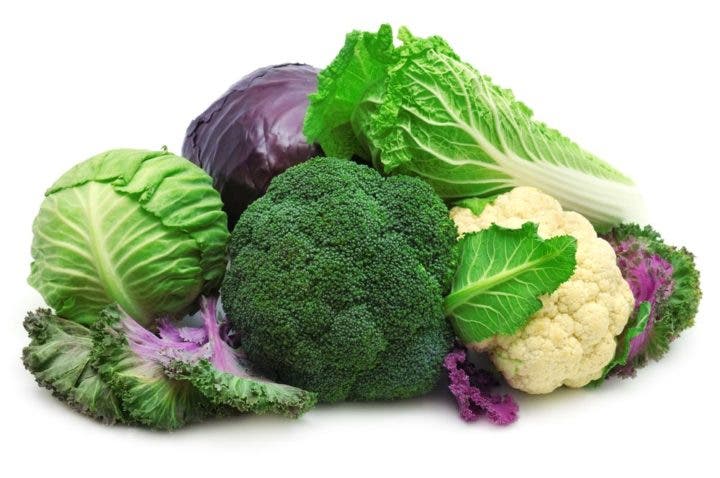If you have thyroid problems, you may well have heard of goitrogens . In fact, you may have even heard that you should avoid certain foods due to their presence, because they interfere with the function of the thyroid gland, that is, they make it difficult for the thyroid to produce the hormones that your body needs to develop a normal metabolism.
But are they really bad enough that you have to avoid them at all costs? Learn how goitrogens influence health and which foods contain the greatest amount of them.
What types of goitrogens are there?
There are three main types of goitrogens; goitrinos , thiocyanates and flavonoids .
Goitrins and thiocyanates are produced when plants are damaged, while flavonoids are naturally present in a wide variety of foods. Some examples include resveratrol in red wine and catechins in green tea.
Flavonoids are considered to be good antioxidants, but some of them can be converted into goitrogenic compounds by our intestinal flora.

What are the effects of a high intake of goitrogens?
For people with thyroid problems, high intakes of goitrogens can worsen thyroid function in the following ways;
- Blocking iodine : Goitrogens can prevent iodine from entering the thyroid gland, and this prevents thyroid hormones from being produced.
- Inhibiting TPO : The TPO enzyme binds iodine to the amino acid tyrosine, and together they form the basis for thyroid hormones. Blocking TPO by goitrogens will prevent the formation of these complexes.
- Reducing TSH levels : Goitrogens are involved in the release of TSH (Thyroid Stimulating Hormone), which helps the thyroid gland produce hormones.
When the function of this gland is altered, problems can be generated in the regulation of body temperature, heart rate, protein synthesis, calcium levels in the blood and the way in which your body uses fats and carbohydrates.
The body can cope if there is a decrease in the production of thyroid hormones by releasing more TSH, which leads the thyroid to produce more hormones. However, a defective thyroid does not respond adequately to TSH.
The thyroid compensates for this effect by generating more cells, which leads to a widening of the gland known as a goiter (” goiter” or ” goitre” in English, hence the name of goitrogens).

What other health problems can goitrogens cause?
Goiter is not the only problem we should consider. The fact that the thyroid cannot produce enough hormones can lead to an increased risk of other pathologies such as;
- Mental impairment
- Heart diseases.
- Weight gain.
- Obesity.
- Development delays.
- Bone fractures

What foods contain high amounts of goitrogens?
Because of all the problems that goitrogens can cause in the thyroid, it is advisable to know which vegetables contain high amounts of goitrogens:
- Cruciferous vegetables : broccoli, cauliflower, cabbage, kale, spinach, turnips …
- Starchy fruits and vegetables : corn, peanuts, pears, strawberries, sweet potatoes, peaches, millet, flaxseed …
- Soy derivatives : tofu, tempeh, soy milk …
Conclution
Although we should not obsess over goitrogens, thyroid problems are very common in those of us who tend to train and repeatedly resort to low-calorie diets , so taking a little into account the foods that contain them can be very positive to avoid them.
References
- Alina Petre, Goitrogens in Foods: Harmful or Harmless ?, for Authority Nutrition [Reviewed March 2016].
